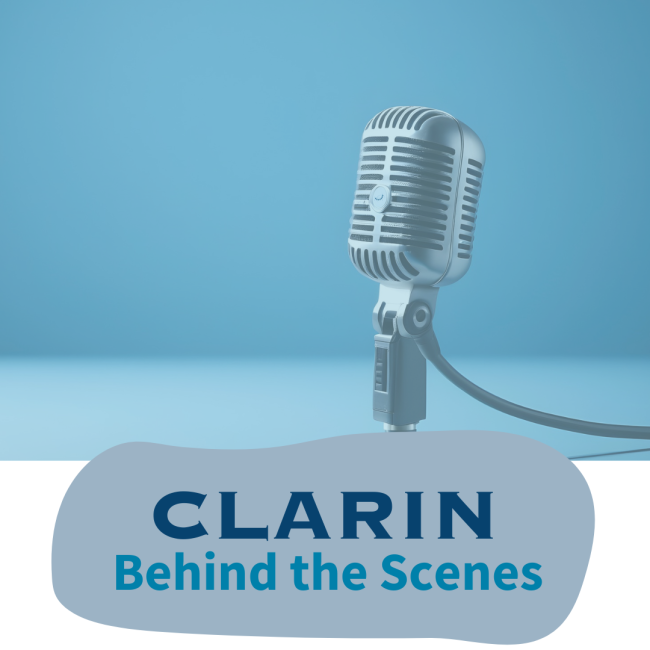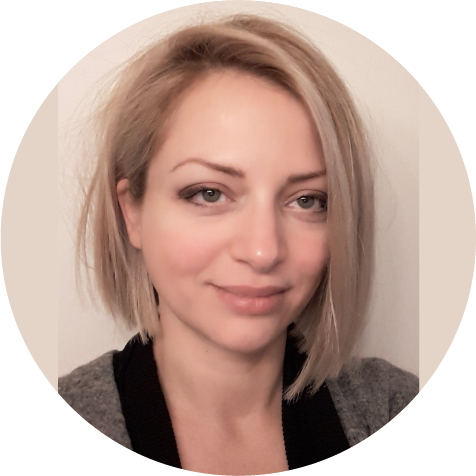
In our Behind the Scenes series, we introduce the people who are working for and using our infrastructure. In the series, we will feature pioneers, researchers, ambassadors, committee chairs, PhD students, and more. This month we introduce CLARIN Ambassador Eva Soroli, Associate Professor of Psycholinguistics at the University of Lille, France.
Please introduce yourself: What is your background?
I am Associate Professor in Psycholinguistics at the University of Lille, France, and affiliated to the CNRS (the National Centre for Scientific Research in France) lab ‘STL’. In my research, I explore the relationship between language and cognition, and work on the semantics-syntax interface from a crosslinguistic perspective. More specifically, I am interested in how speakers acquire a language, and to what extent this experience may influence the way they learn a second or a third language, or re-acquire their first one in cases of language impairment, for example, after a stroke. From a methodological point of view, I combine experimental with corpus data, and try to understand the mechanisms that guide the verbal and non-verbal behavior of speakers, in monolingual and multilingual contexts.
With respect to my background, I got my M.Sc. in Computer and Cognitive Science at the University of Orsay, in Paris-Saclay, and my PhD in Psycholinguistics at the University of Paris 8. After my PhD, I worked as a post-doc researcher at the CNRS. In 2012, I was appointed as an Associate Professor of Psycholinguistics at the University of Lille. Since 2020, I have been a visiting lecturer at the Sorbonne University. Additionally, for the CNRS in France, I am a member of the national committee of scientific research on Language Sciences and a member of the interdisciplinary commission Science and Data.
How did you get involved with CLARIN?
As a linguist, I have been working within a national consortium on Corpora, Language and Interactive Communication (CORLI), which is actively involved in the French infrastructure HumaNUM on digital humanities. My role at the management and scientific committee of CORLI, as well as my involvement in its certification as a CLARIN Knowledge centre (K-centre), were the first steps towards CLARIN and its services. In 2021, I was invited by Franciska de Jong to join CLARIN’s Ambassador programme. It was a great honor for me to be appointed to such a responsibility and such a pleasure to represent the CLARIN infrastructure and its pivotal role in coordinated research work.
As an ambassador, my first goal was to develop connections between the CLARIN community and researchers working in the areas of my expertise: psycholinguists, neurolinguists, and researchers working on first and second language acquisition. In these areas, data and data collection is the core of our work. Real language (mostly verbal production) data allow us to study from a usage-based perspective child language acquisition processes, second language learning, language re-appropriation in cases of impairment, and further inform our models in theoretical and applied linguistics. Today, as the volume of digital data increases, the need to make them FAIR (findable, available, interoperable, reusable) and follow common standards is greater than ever. These principles, strongly supported by CLARIN and its network, are relevant for any scientific discipline, but also more and more relevant for the fields of psycholinguistics, neurolinguistics and applied linguistics, which are typically characterised by great variability in collection practices and data formats.

'For researchers in the language sciences, initiatives and services that standardise research practices and promote knowledge-sharing are crucial. They provide the necessary resources and enable researchers to use state-of-the-art tools and methods in an internationally connected way. As one of the most dynamic European Research Infrastructure Consortiums, CLARIN plays a central role in fostering such advancements and facilitating international collaborations and connectivity.'
Eva Soroli, CLARIN Ambassador
What has your role as Ambassador meant in practical terms?
My role is to raise awareness about Open Science and encourage participation in CLARIN in disciplines and communities that are not yet fully integrated in the infrastructure. In my role as ambassador, I seek opportunities to promote CLARIN within relevant projects, scholarly networks, institutions, and other research infrastructures, and attend key events in my field of expertise to promote CLARIN resources, tools and services with talks, panel discussions, masterclasses, training sessions etc.
For example, during my appointment as an ambassador, I was involved in the creation of a Resource Family on Sign Language Resources (SLR) in collaboration with the Dutch, French, Greek and Swedish CLARIN K-centres, and in the organisation of workshops and training sessions (e.g., the CLARIN Café on bilingual corpora and analysis, the MEDAL workshop on corpus and experimental approaches to language, and the LLcD Workshop on research infrastructures). I also established connections with different associations and consortia of language sciences, applied and clinical linguistics (e.g., Association of French Language Studies (AFLS), Digital Humanities infrastructure (HumaNum), Association of Language Sciences (ASL), Corpus, Language and Interaction Consortium (CORLI), International Society of Experimental Linguistics (ExLing), the Collaboration of Aphasia Trialists Network (CAT), the Languages and Language Network (LLcD GDR)), and initiated collaborative networks (e.g., the Multi-Ali ANR network on Acquired Neurogenic Language Impairments in a Multilingual World – an international network which brings together neurolinguists, cognitive psychologists, speech and language therapists, and which addresses the lack of multilingual resources to enhance clinical applications, aiming to develop digital solutions to support more effective usage-based solutions for people with acquired communication disorders and clinical professionals).
Your term as CLARIN Ambassador is coming to an end this year. What was your favourite CLARIN-related experience?
As a CLARIN Ambassador, I have led several training sessions and tutorials that empower young researchers with practical skills for their language studies. The most memorable experience was one organised by the French CORLI CLARIN K-centre in Paris, where I conducted a masterclass for young researchers in language acquisition and psycholinguistics on the functionalities of the CLAN software and the principles for multidimensional annotation principles and analysis of oral and multimodal corpora.
In these sessions, I covered three main parts: transcription, linguistic (semantic and morphosyntactic) annotation, and automatic analysis. Participants learned about CLAN's utility (e.g., for studying discourse, language learning, and disorders). We explored how the programme facilitates transcription, media linking, annotation, and how it aids researchers and clinicians in hypothesis testing by computing indices such as MLU, TTR, and IPSyn (among others). This session was highly appreciated. It aimed to support early-stage researchers with their projects and also more experienced researchers in developing their methodological skills. Participants saw in a one-day hands-on practical session how they can concretely use CLARIN services, especially the CLAN programme (developed within the TalkBank K-centre), for multidimensional discourse analysis.
What is your favourite CLARIN resource - and why?
CLARIN facilitates the use and study of linguistic data, supports interoperability, and aims to enhance the potential of comparative research. Thanks to the development of an interface that allows access to data and resources with a connection, CLARIN ensures continuous support for the members involved in the consortium.
Apart from the 'classic' VLO tool (the Virtual Language Observatory), which provides access to corpora and offers the possibility to work with data processed with the same encoding standards, and of course the Switchboard, which offers useful tools for the analysis of these data, I also use the resources available for annotation principles, manuals, and training through specialised CLARIN K-centres. I have been using these CLARIN services for my teaching, especially the tools that allow oral corpus transcription and annotation, such as the CLAN software, and others available in the CHILDES, ACE, and CORLI K-centres.
I also use the CLARIN infrastructure for my research and my cross-linguistic usage-based comparisons. For example, the CLARIN Resource Families provide organised access to data and tools in specific domains. The parallel corpora and the oral corpora Resource Families are the most relevant for my work. Another useful resource is the Virtual Collections tool, which allows researchers to create links to their digital objects (e.g., annotated texts or videos). I use the Virtual Collections in combination with the OPUS corpus database to build my own parallel corpora and save them independently under a persistent identifier, which I can use in my publications.
What are your future plans? Do you plan to continue your engagement with CLARIN?
For researchers in the language sciences, initiatives and services that standardise research practices and promote knowledge sharing are crucial. They provide the necessary resources and support researchers to use state-of-the-art tools and methods in an internationally connected way. As one of the most dynamic European Research Infrastructure Consortiums (ERIC), CLARIN plays a central role in fostering such advancements and facilitating international collaborations and connectivity.
My future plans involve continuing to support this initiative by empowering scholars, researchers, and students to effectively share and access knowledge and best practices in line with FAIR principles. I aim to contribute to the development and dissemination of standardised research practices, promote the use of advanced tools and resources, and facilitate international research collaborations. By doing so, I hope to enhance the quality and impact of research in the language sciences, ensuring that our work remains at the forefront of global scientific advancements.